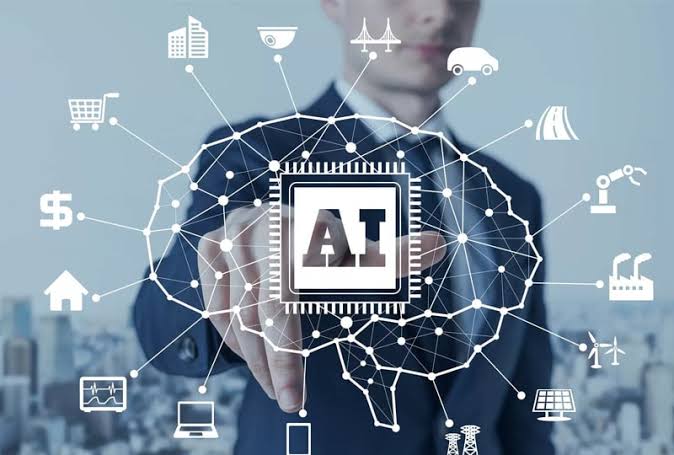Artificial intelligence (AI) has rapidly become a transformative technology in modern times, with its impact being felt across various sectors. AI has been used to automate and optimize tasks, improve efficiency, and even make decisions based on data. However, the advancements in AI have also raised concerns about its limitations and ethical considerations. In this article, we will discuss the role of AI in modern times, including its advancements and limitations.

Advancements in AI have been significant in recent years. AI technologies such as machine learning and natural language processing have enabled machines to learn from data and interact with humans in more natural ways. These advancements have led to the development of chatbots, virtual assistants, and other AI-based tools that can assist with tasks such as customer service, data analysis, and even medical diagnosis.
In addition to these advancements, AI has also played a significant role in driving innovation and productivity in industries such as manufacturing, finance, and healthcare. AI has enabled automation of repetitive tasks, reduced errors, and improved speed and accuracy in decision-making. As a result, AI has the potential to drive economic growth and create new job opportunities.

However, the advancements in AI have also raised concerns about its limitations and ethical considerations. One major concern is bias in AI algorithms, which can perpetuate existing societal biases and result in discriminatory outcomes. Additionally, there are concerns about the impact of AI on employment, as automation may lead to the displacement of workers in certain industries.
To address these concerns, it is important to prioritize the development of ethical AI practices. This includes the need for transparency in AI algorithms and processes, and the inclusion of diverse perspectives in AI development to avoid bias. It is also important to invest in education and training for workers to develop skills that will be in demand in a world where AI plays an increasingly important role.
In conclusion, AI has become a transformative technology in modern times, with its impact being felt across various sectors. Advancements in AI have enabled automation, improved efficiency, and driven innovation, but there are also concerns about its limitations and ethical considerations. By prioritizing ethical AI practices and investing in education and training, we can ensure that AI continues to play a positive role in driving economic growth and improving our lives.
------
Artificial Intelligence (AI) is rapidly evolving and being integrated into various industries, ranging from healthcare to finance to transportation. The potential benefits of AI are numerous, including increased efficiency, improved accuracy, and enhanced productivity. However, there are also significant concerns surrounding the ethical and societal implications of this technology.
One of the most pressing concerns is the potential for AI to perpetuate and amplify biases. AI systems rely on large datasets to learn, and these datasets can perpetuate existing biases and prejudices. For example, facial recognition technology has been shown to have higher error rates for people of color, due in part to the lack of diversity in the datasets used to train these systems. As AI becomes more pervasive, it is crucial to ensure that it is designed and implemented in a way that does not reinforce systemic biases.
Another concern is the potential impact of AI on employment. While AI has the potential to increase productivity and efficiency, it also has the potential to displace workers in certain industries. As AI becomes more advanced, it may be able to perform tasks that were previously thought to be exclusively within the domain of human workers, leading to job losses and increased economic inequality. It is essential to consider the implications of AI on the labor market and to ensure that workers are equipped with the skills needed to adapt to these changes.
Finally, there are concerns surrounding the ethical implications of AI. As AI becomes more advanced, it may be able to make decisions that have significant ethical implications, such as decisions about who to hire or whether to approve a loan. It is crucial to ensure that these decisions are made fairly and transparently, and that appropriate safeguards are in place to prevent discrimination or other unethical practices.
In conclusion, while AI has the potential to provide significant benefits to society, it is essential to approach this technology with a critical eye. It is crucial to address the ethical and societal implications of AI and to ensure that it is designed and implemented in a way that benefits everyone, rather than perpetuating existing biases and inequalities.




You must be logged in to post a comment.